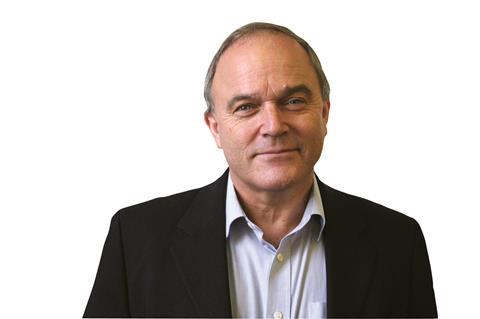The easing of Covid restrictions brings fresh challenges to law firm recruitment
Unpredictable. Unprecedented. Unexpected. Circle the adjective that best describes your firm’s experience of the legal jobs market now that Covid restrictions are being lifted. Finding it difficult to fill vacancies? Tell that to the recruitment consultant who describes 2021 as ‘one of the best years ever’. You are looking for a new position, but people, it seems, are loath to move on. If that is the case, then what price Bank of England claims that the number of employees on employers’ books increased to a record high in September 2021?
Fresh dilemmas also abound. What to do about existing employees unwilling to forsake working from home (WFH) for a return to the office? Or employees, having enjoyed a degree of independence, feeling more empowered to challenge management diktats? What are you going to do with those plush (and expensive) Docklands premises that suddenly seem full of unoccupied desks? And a particularly tricky one, do you have procedures in place to deal with those senior partners with negotiation responsibilities who refuse to travel or attend face-to-face meetings because of the risk of contracting Covid-19?

At the coal face
We have heard commentary from City, international and provincial recruiters. Employment lawyers have weighed in with advice about the legal implications of the new normal. And yet we have not heard from any firms labouring at the coal face, striving to serve their ordinary clients in extraordinary times. How have they fared and were they able to overcome the obstacles that lockdown, the virus and a general sense of disorientation have cast in their path?
Maya Fender is the finance manager at 10-office London and south-east firm Parfitt Cresswell. She is also the member of the senior management team with responsibility for recruitment. The firm was established in 1908 and has almost 100 staff. Fender says: ‘Lockdown was a powerful catalyst for progressive change. We immediately invested in IT to allow agile working and working from home (WFH). Health considerations apart, this gave prospective candidates and existing colleagues more flexibility in their choice of work-life balance.
‘We found that some candidates prefer the quiet of home to the buzz of the office. That was perfectly acceptable, except there are downsides to WFH. Newly appointed lawyers miss out on learning from others how we do things, for instance. Just simple conversations in the corridor can tell you a lot. And then there’s the difficulty of getting people to tune into the firm’s culture.
‘I was careful to keep in touch with the 15 new starters we have appointed since the pandemic began. And I have been kept busy visiting our 10 offices. WFH is enormously efficient regarding travel time and when the option to work in an office was taken away, then we simply had to get on and make the best of video calls. Zoom and Teams have proved invaluable tools, but our emphasis is always to have people in the offices face to face. We encourage hybrid working rather than WFH full-time.’
The dilemmas facing firms, despite the optimistic pronouncements from some quarters, would seem to outweigh the solutions. How are you successfully going to integrate the 100-plus staff you interviewed and appointed remotely? Who among your senior management team has the time to mediate discrimination claims? How do you assuage employee fears about contamination from hot-desking? And so the dilemmas continue. A mix of legal recruiters, employment lawyers and law firm managers attempt to reassure us that all is not lost.
First up is Gideon Palmer (not his real name), a non-practising law graduate who leads a recruitment team at an international City firm. (He asked that neither his name nor the firm for which he works is identified.) ‘In the olden days,’ he reminisces, ‘WFH was treated as a favour for trusted, long-term employees. You knew and valued them, but they would never have thought of asking you for a flexible working model unique to themselves as early as, for instance, the interview stage. That’s all changed. People have tasted independence and Pandora’s box has been opened, never to be shut again.’
'Everyone is very busy chasing the same talent. Suppose you want to recruit a banking lawyer. You are likely to lose out to a US firm offering a 30% higher salary. Also, because so much recruiting is going on, a disgruntled employee knows that he can hand in his notice and, on the terms that he dictates, quickly get another job up the road.'
Palmer says that many firms, even before the pandemic, had set up for WFH: ‘The structures were all there and they functioned so effectively that some firms reported their best year’s figures ever. Some of the improvement came from not commuting, which gave fee-earners an extra two hours of chargeable time at the start and end of each day. They were also less tired, of course, less worn down by the vagaries of leaves on the track and the other dubious joys of commuting.
‘The other consequence of WFH was that senior management could no longer refuse it on the grounds that it didn’t work, claiming that productivity inevitably suffered. Firms reporting record annual figures tell a different story.’
How has all this impacted on Palmer’s role at an international City firm? ‘There aren’t enough qualified lawyers to go around,’ he says. ‘Everyone is very busy chasing the same talent. Suppose you want to recruit a banking lawyer. You are likely to lose out to a US firm offering a 30% higher salary. Also, because so much recruiting is going on, a disgruntled employee knows that he can hand in his notice and, on the terms that he dictates, quickly get another job up the road.’ What can Palmer and his ilk do about this? ‘The best – probably only – weapon in your armoury is to offer the flexibility that your employee demands.’
Solicitor Gordon Turner of London, Birmingham and Manchester-based Gordon Turner Employment Lawyers, sees the post-Covid legal employment market from a different perspective. Much of Turner’s work revolves around Microsoft Teams meetings and online employment tribunal hearings, some of which do have an international component. He gives the example of a claim for flexible working submitted by the head of global procurement for a household-name company.
‘He was earning £200,000 a year,’ says Turner, ‘and his responsibilities included visiting factories overseas to check, for example, that they were complying with the regulations around child labour and were not polluting local rivers with toxic waste from their manufacturing operations. He wanted four days per week WFH, which effectively barred him from foreign travel – a central part of his job. For that fundamental reason, the case was struck out.
‘Some people, during and after lockdown, have begun to believe that they can act for their company, rather than be employed by it. The belief has been fuelled by their experience of WFH and its associated feelings of independence and being your own boss.’
Other employees have seen their ambition fired by WFH. ‘I’ve been working unsupervised from home for the last 18 months,’ they reason. ‘Clients like and trust me, so why don’t I take those clients with me and set up as a consultant?’
'There are just not enough lawyers with five- to seven-years’ post-qualification experience coming forward. Some of the gaps are being filled by newly qualified lawyers. They learn quickly, but it’s an unsatisfactory, short-term solution'
Emma Moss, TN Recruits Law
Claimants come to Turner with a range of post-Covid grievances, some of which have no traction at tribunal. One man claimed sexual discrimination because he knew several women who benefited from flexible working arrangements, but he had been refused, he said, ‘because I am a man’. His case was struck out when it became clear that, having experienced WFH for many months, he simply no longer wanted to work afternoons. Other claims failed for the classic reason that the claimant was not comparing like with like. ‘They may say, in an almost childlike way, that it’s not fair, but if they are dealing with frontline issues,’ says Turner, ‘then their colleagues have to pick up the reins, which is not fair on colleagues or clients.’
Employers risk becoming mired in mediating a surge in disputes. Is anything being done to make things fairer for them? Turner replies: ‘The Advisory, Conciliation and Arbitration Service (ACAS) has created a template letter for requesting flexible working. It is just a request, not a statutory requirement placed on employers, but they are urged to ensure that employees complete the letter so that the request is submitted formally and can be dealt with accordingly.’
‘Where have all the candidates gone?’ asks Emma Moss, a consultant at specialist legal recruiters TN Recruits Law, which is active across Kent, Sussex, London and the south-east. ‘Legal recruitment is a difficult market because there is always a shortage of candidates. And Covid-19 has made it even more challenging.’ The country has the highest level of employment since records began in 2001, with LinkedIn reporting in August that it has nine times the number of jobs advertised than it had 12 months earlier. And yet despite the redundancies and lawyers opting for early retirement or a career change, ‘there are just not enough lawyers with five- to seven-years’ post-qualification experience coming forward,’ says Moss. ‘Some of the gaps are being filled by newly qualified lawyers. They learn quickly, but it’s an unsatisfactory, short-term solution.’
Moss says 2021 has been ‘one of TN Recruits Law’s best years ever and the year is not even finished yet’. But she warns: ‘The isolation arising from WFH will see lawyers having to cope with mental health issues down the line. Lockdown hasn’t finished with us yet. There are still problems to come.’
Seamus Hoar is senior partner at Major Lindsey & Africa (MLA), a recruitment agency with 31 offices across Europe (including London, where Hoar is based), the US, Asia and Australia. It has been trading for 35 years. Writing in the Gazette in July, Hoar – who has responsibility for partner hires – says that the pandemic witnessed ‘an aggressive hiring spree at the top end of the market’ driven by M&A, private equity and other areas. ‘Now, as (Covid) restrictions ease and parts of the economy appear robust, the demand for high-performing partners shows no signs of abating.’
Technology facilitates the recruitment process, Hoar said, allowing large groups of partners to interact across time zones without having to leave their desks: ‘Pre-pandemic, joining a new firm without (first) having met future colleagues in person would have been unthinkable. Not so any longer… On the contrary, prospective new partners have quicker, easier access to a broader range of partners globally. Also, once the newly appointed partner has started at the firm, the entire integration process can be executed by way of remote meetings.
‘These new remote recruitment practices, given the logistical ease and accessibility they afford firms, are unlikely to disappear when restrictions ease.’
He concluded: ‘The pandemic has, by necessity, altered law firm recruitment processes and, in doing so, has demonstrated that technology can be a vital and productive tool. There will, of course, eventually be a return to travel and face-to-face meetings. However, law firms who recognise and utilise the best elements of virtual meetings will have an advantage in what is a turbo-charged, high-octane partner hiring market.’
'Some people, during and after lockdown, have begun to believe that they can act for their company, rather than be employed by it. The belief has been fuelled by their experience of WFH and its associated feelings of independence and being your own boss'
Gordon Turner, Gordon Turner Employment Lawyers
Employment solicitor Pam Loch set up Loch Associates Group in 2007 to provide employment law and human resources guidance to businesses and individuals across the south-east and beyond. She comments: ‘Post-Covid, we are seeing firms that are keen to retain talent saying that, for the moment, they are happy to wait and see how the market develops. Wait and see, of course, is hardly conducive to recruitment drives or the adoption of new working models.’
WFH for 18 months worked well for many firms, Loch adds, and so common sense dictates that it might be prudent to carry on. After all, many lawyers and support staff are still reluctant to return to the office. ‘They put forward a variety of reasons for staying away, yet underlying it all is a genuine fear of catching Covid either on the journey into the office or at the office. Hot-desking means you touch and use equipment that someone else touched and used the day before. Has everything been adequately disinfected? Management has been quick to make reasonable adjustments to allay staff apprehensions, but no precautions are foolproof.’
The profession, says Loch, did not choose WFH. ‘It was imposed on us by government and by the pandemic. It has led to junior staff not learning from senior practitioners, not picking up market intelligence, not being able to collaborate with other lawyers to see how things are done. Employers have put in temporary arrangements and are walking on eggshells to avoid being non-compliant with the new normal.’
Loch goes on to disclose that there is still a worrying number of claims ‘stuck’ in the tribunal system, a symptom of the general ‘angst’ pervading the legal market. ‘The perceived balance of power has shifted and staff are more prepared to challenge conditions of service and are less shy when it comes to requesting amendments to their employment contracts. But then, of course, as employment solicitors we are often called upon to handle the negative side of working life, whereas most people are just happy to carry on doing their jobs.’

The consensus that has emerged from this survey of post-Covid legal recruitment is that the use of technology has been accelerated by the pandemic and that it is here to stay. Even pre-pandemic, people were working on artificial intelligence solutions to some of the time-consuming chores that can bury fee-earners under paperwork. Not everyone, however, has been able to embrace even the most elementary of technologies. There have been occasions where practitioners, deprived of support staff who can type for them, have handwritten legal documents – just like in the old days.
That same technology has put a stop, perhaps temporarily, to the need for lawyers to jet off to other countries for face-to-face meetings. That is good news for the environment, helps suppress the spread of Covid and also saves the expense of air travel.
'The perceived balance of power has shifted and staff are more prepared to challenge conditions of service and are less shy when it comes to requesting amendments to their employment contracts'
Pam Loch, Loch Associates Group
That does not mean, unfortunately, that the profession is headed for the ‘sunny uplands’ promised by Winston Churchill and his present-day Tory successors. Some problems have endured through lockdown and beyond, such as the regulatory burden of practising law in this country and the diminution of legal aid. And yet there is considerable cause for optimism. The anticipated rash of redundancies and firms going into liquidation during and after Covid has not occurred. Yet.
































No comments yet